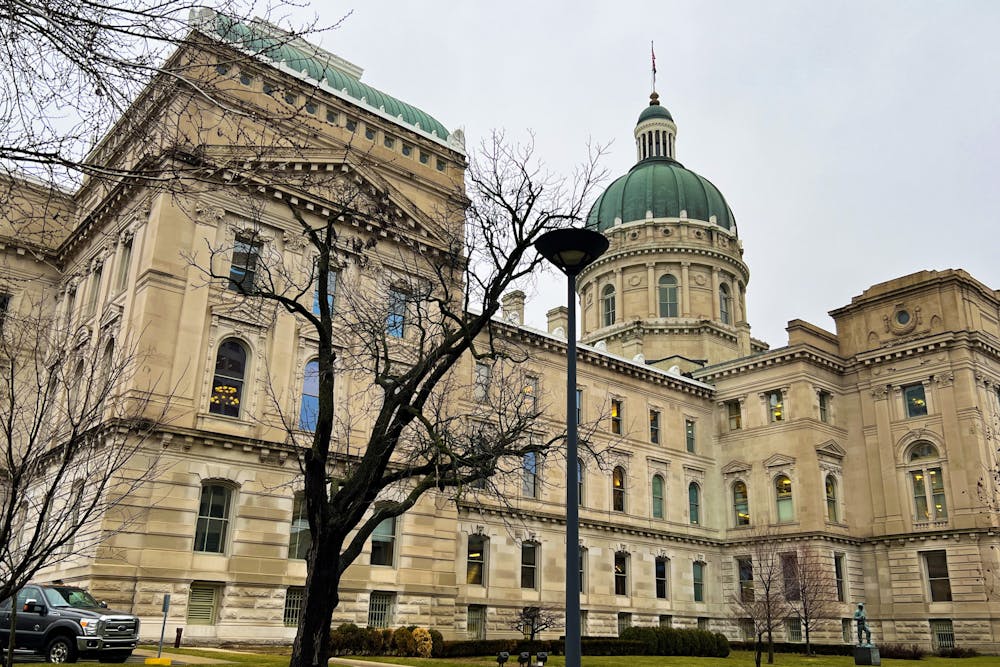The Indiana Legislature has considered numerous laws restricting or regulating children’s access to information. House Bill 1447 created a process for school libraries to pull books deemed inappropriate for children or face legal consequences. House Bill 1608 would ban discussions of human sexuality in school entirely. A similar bill introduced this legislative session, Senate Bill 17, restricts access to the internet for all Hoosiers.
Republicans in the state legislature backed SB 17, which will require ID verification for websites hosting “adult-oriented” content. Parents of minors who access these sites can pursue damages against the website provider.
Indiana law defines material harmful to minors as nudity or sexual conduct, encouraging sexual behavior, materials lacking artistic or scientific value and anything “offensive to prevailing standards in the adult community as…suitable matter…[for] minors.”
Sen. Mike Bohacek co-wrote this bill. In an interview with the Indiana Capital Chronicle, he said, “We have children who have seen hardcore content before they have their first kiss.”
Sen. Mike Young, a co-author, said that minors do not have access to stores that sell adult products. No one can buy cigarettes without having an ID checked. He told the Indiana Capital Chronicle that online pornography is a loophole for minors to access adult content.
This bill is more restrictive than the previously existing law, the Children’s Online Privacy Protection Act. The existing COPPA law requires websites and platforms directed toward or hosting anyone under 13 to have parental consent before collecting personal information. This includes social media.
The Indiana chapter of the American Civil Liberties Union says SB 17 violates Hoosier's First Amendment rights and allows for excessive government surveillance.
Chris Daley, executive director of the ACLU, said in a statement, “In the history of the Internet, we’ve never been required to present an official ID to merely visit a website.” He said this practice is similar to voter ID laws and relies on flawed technology.
Daley said in a court filing, “[The] state can limit a minor’s access to adult material. However, you can’t do that in a way that impermissibly burdens an adult’s access to the same material.”
The ACLU said on their website that SB 17 is a continuation of ongoing culture wars. “We’ve already witnessed a systematic effort to censor access to LGBTQ+ literature in Indiana schools and libraries using the phrase ‘material harmful to minors.’”
SB 17 dictates that age-verification platforms cannot keep user information, and if that is violated, individuals can seek damages. Senate Minority Leader Greg Taylor, D-Indianapolis, said in an interview with CBS News that these platforms are often based outside the U.S. This, he said, compromises the American government’s ability to regulate user data safety.
As of early 2024, other states have already implemented similar laws. According to the 19th News, eight states require ID age verification for websites that require users to be over 18 to access. Illinois and Tennessee have similar bills including criminal liability for websites hosting adult content that allow children access to their sites.
The bill passed both Indiana chambers and was signed by Gov. Holcomb on March 13.
Sarah Presley is a senior majoring in Journalism with a minor in International Studies. Her Instagram is @sarah__presley.





